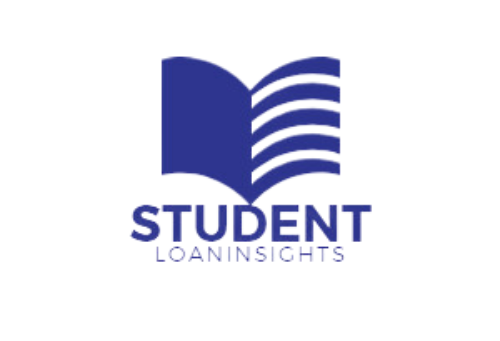According to the Federal Trade Commission, the agency received 495,855 fraud reports in the first quarter of 2023. Student loan scams come in various forms, from aggressive phone calls and emails to text messages. These scams often promise immediate student loan forgiveness or debt relief for an upfront fee. However, legitimate government programs like the Federal Direct Consolidation Loan Program, Public Service Loan Forgiveness, and Teacher Loan Forgiveness provide free assistance to borrowers. It’s crucial for student loan borrowers to be vigilant and work directly with their federal loan servicers to explore repayment options and avoid falling victim to these predatory schemes.
Key Takeaways
- The Federal Trade Commission received over 495,000 fraud reports in the first quarter of 2023, many related to student loan scams.
- Scammers use aggressive tactics, such as phone calls and emails, to promise immediate student loan forgiveness or debt relief for an upfront fee.
- Legitimate government programs, like the Federal Direct Consolidation Loan Program and Public Service Loan Forgiveness, provide free assistance to borrowers.
- It’s crucial for student loan borrowers to work directly with their federal loan servicers to explore repayment options and avoid falling victim to predatory schemes.
- Vigilance is key to identifying and avoiding student loan scams.
Recognizing the Warning Signs of Student Loan Scams
When it comes to student loan scams, recognizing the warning signs is crucial to avoid falling victim to these predatory schemes. Scammers often use a variety of tactics to lure unsuspecting borrowers, and it’s important to be vigilant in order to protect your finances and personal information.
Aggressive Advertising Language
Scammers frequently use aggressive, urgent language to pressure borrowers into their services. For example, they might claim “Act immediately to qualify for student loan forgiveness before the program is discontinued” or “Your student loan is flagged for forgiveness pending verification. Call now!” The U.S. Department of Education and its partners would never use such advertising tactics.
Promises That Are Too Good To Be True
Scammers often promise immediate and total student loan cancellation in exchange for an upfront or monthly fee. However, legitimate government student loan forgiveness scams programs typically require years of qualifying payments and/or employment in certain fields before forgiving loans. If a company is offering instant student loan debt relief scams, it’s likely a scam.
Requests for Log-in Information
Scammers may attempt to obtain your StudentAid.gov account information, such as your FSA ID (username and password). This is a red flag, as the Department of Education and its partners will never ask for your password. Providing this sensitive information can compromise your account and lead to identity theft.
By being aware of these recognize student loan scams warning signs, you can better protect yourself and your finances from the harmful impact of student loan scams.
Legitimate Assistance for Student Loan Repayment
As a student loan borrower, it’s crucial to understand the resources available to you through the U.S. Department of Education and its network of federal student loan servicers. These servicers play a vital role in helping you navigate the complexities of student loan repayment and explore various student loan repayment assistance options.
Federal Loan Servicers
The Department of Education works with private companies, known as federal loan servicers, to collect payments, answer questions, and help borrowers choose the right repayment plan. These servicers provide free assistance and include Edfinancial, MOHELA, Aidvantage, Nelnet, ECSI, Default Resolution Group, and CRI.
Income-Driven Repayment Plans
The Department of Education offers income-driven repayment plans that base your monthly payment on your income and family size. These plans can help make your federal student loan payments more affordable, ensuring you stay on track with your repayment obligations.
Loan Forgiveness Programs
The federal government also offers loan forgiveness programs, such as the Public Service Loan Forgiveness and Teacher Loan Forgiveness, which can forgive all or a portion of your federal student loans if you meet certain eligibility requirements, such as working in a qualifying public service or teaching position.

Student loan scams and How to Avoid Them
To avoid student loan scams, it’s crucial to work directly with the U.S. Department of Education or its affiliated federal loan servicers when seeking assistance with your federal student loans. These entities provide free services and will never ask for upfront fees or your login information.
Work Directly with the Department of Education
By engaging with the Department of Education or its approved federal loan servicers, you can access all the available repayment and forgiveness programs without having to pay any third-party fees. These government-backed resources offer legitimate guidance to help you navigate how to avoid student loan scams and manage your student debt effectively.
Ignore Aggressive Advertising
Be wary of any companies or individuals making aggressive, time-sensitive claims about student loan forgiveness or debt relief. The Department of Education and its partners will not contact you using these tactics, which are often a hallmark of student loan scam prevention.
Never Pay for Student Debt Relief
There is no need to pay a third-party company for student debt relief services, as borrowers can access all available repayment and forgiveness programs for free through the Department of Education and their federal loan servicers. Avoid falling victim to these predatory schemes by working directly with the government-approved resources.
Conclusion
Student loan scams 2024 continue to be a persistent problem, with the Federal Trade Commission reporting a significant number of fraud reports in recent months. By recognizing the warning signs of these predatory schemes, such as aggressive advertising, unrealistic promises, and requests for sensitive information, you can protect yourself and your finances. The best way to navigate student loan repayment is to work directly with the U.S. Department of Education and its approved federal loan servicers, who provide free assistance and access to legitimate programs.
Staying vigilant and avoiding any companies or individuals promising immediate debt relief for a fee is crucial to avoiding student loan scams. Remember, the Department of Education and its partners will never use aggressive tactics or ask for your login credentials. By being proactive and utilizing the free resources available, you can successfully manage your student loan obligations and steer clear of these harmful scams.
Ultimately, the key to avoiding student loan scams is to stay informed, work directly with your federal loan servicer, and never pay for services that the government provides for free. By taking these steps, you can safeguard your financial future and focus on achieving your educational and career goals.

